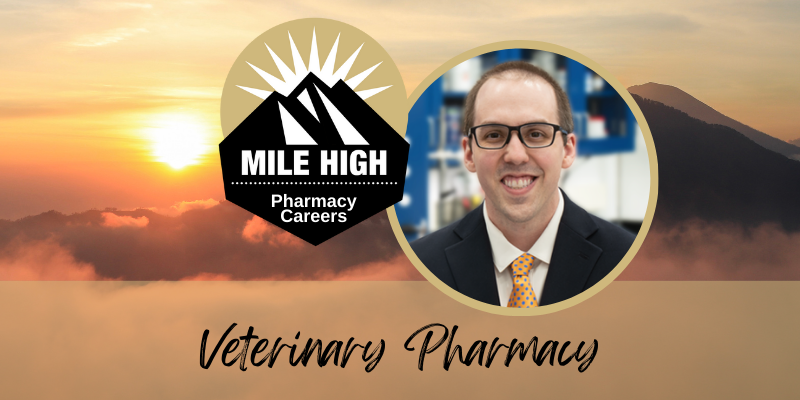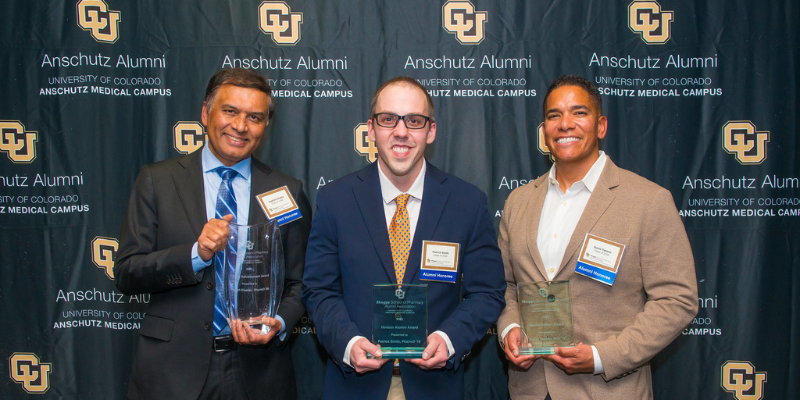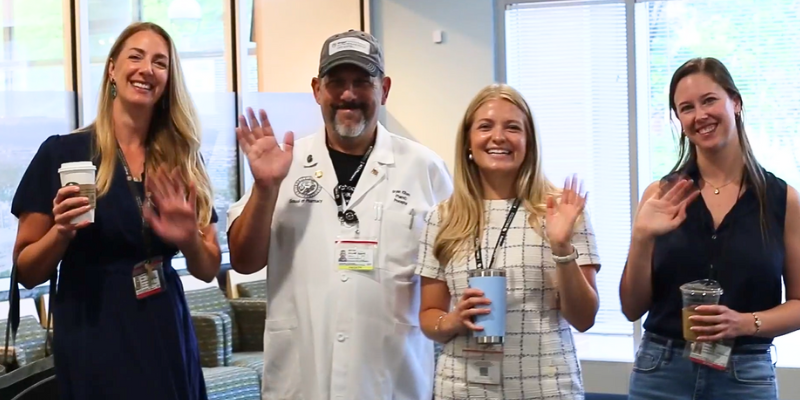Career Services Manager Laurie Sein continues her conversations with CU alumni involved in new and novel fields of pharmacy. This time, Dmitriy Gekker, PharmD '20, takes center stage, discussing his role at STAQ Pharma as an intern production pharmacist.
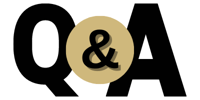

How would you describe your current practice area?
I am an intern production pharmacist at STAQ Pharma, a 503B pharmacy. We're kind of a hybrid between your regular compounding pharmacy and a manufacturer. Depending on what state we’re licensed in, we’re either an outsourcing facility, a compounding
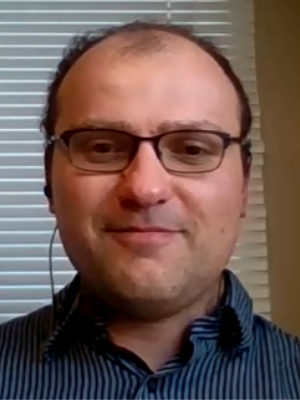
Dmitriy Gekker, PharmD '20 |
pharmacy, a manufacturer, or something in between depending on the local jurisdiction. The gist of it is that we can create all formulations without the need for prescriptions, and we can sell for office use and for clinical use. Essentially, I formulate drugs. I come up with new drug products and I do a lot of research and writing and just have a very interesting time doing it. It's a great career path if you can get yourself into it.

Formulating sounds so much like chemistry, and certainly that is part of what pre-pharmacy students receive in their training. How did your PharmD degree and any other skill sets or education help you in this role?
Since a 503B pharmacist has to be on site, we are still considered a pharmacy by the FDA definition as they are one of the entities that does audit us, along with the State Board of Pharmacy and the DEA. And affirmed really helps you here because you can talk to other pharmacists, usually in the clinical setting. The pharmacist in charge or pharmacy manager might need labetalol. They might have a shortage of some other medication and you can use your clinical knowledge. Your clinical background certainly helps you in those settings. You can also have a pretty good idea of what type of formulations are seen in patient care settings. Do you want to have suppositories? Do you want to have oral solutions? Do you want to have pills? Do you want to have prefilled syringes, onto pumps, etc.? All that experience which you basically get during your PharmD curricula definitely come into play here.

Walk through what a typical day is like at STAQ. What are some standard responsibilities for you?
Because we are a startup, each day is very different. For instance, at the beginning of the week, I was in formulation because we had some new things we were about to try. We routinely change our standard operating procedures. If we find a way to do something better or to optimize our formulation processes. Formulation, just to give you a little background, is essentially taking the Active Pharmaceutical Ingredient (API) and putting it into a solution of sterile water usually. We might buffer it with hydrochloric acid or sodium hydroxide. We also make sure that it's isotonic, so may add certain reagents to it to make it isotonic, though usually just sodium chloride itself is enough. Back sizes in this case are around 2,250 liters, so they are quite large and this makes several thousand prefilled syringes. At the beginning of the week, I was doing that on Monday. Today, it's Tuesday and it just so happens they didn't need me for formulation, so I was doing drug development. That's a big field that I've kind of taken hold of just because of my own chemistry background and my own background in drug synthesis and drug design. It's been very fun because we're kind of creating new products that hospitals need right now. One big one being unrefrigerated pharmaceutical products due to the COVID vaccines needing to take up as much refrigerator space as possible. We're really focusing on trying to create long lasting unrefrigerated products, and it's very rewarding because you know that not only do other institutions have a need for what you're making, but you are actively helping during this pandemic.

What's your favorite part of this practice area?
My favorite part has definitely been the drug development portion of it. It's something that's not really touched upon in our curriculum unless you go into compounding. It's just been so fun because there's a lot of literature out there, patent literature, or published literature of various types of carrier agents that you can use for gels, IV solutions, eye drop solutions, or nasal applications. You have this goal to make a sterile product, but you have all of these confinements and limitations based upon STAQ Pharma’s sterility processes based upon budgets, regulatory matters, and so on. You're supposed to use all of that to figure out this problem, and each problem is very unique. It has its own set of challenges. It keeps you on your toes all the time. It's just something that I never thought I would actually be doing, but it's extremely fun and extremely rewarding.

Is there anything that you didn't feel you were prepared for as far as certain aspects of the job?
Yes, absolutely. The regulatory aspects have been eye opening for me. We have to follow Current Good Manufacturing Practice (CGMP) guidelines and that is really overwhelming. There's a compendium of regulations that we have to go through. Things we can do, things we can't do, the way things are printed, the way standard operating procedures are presented, the way that standard operating procedures can be edited. The entire workflow of our pharmacy basically has to follow these very stringent, well documented guidelines. For instance, any single time we weigh anything out, we need to have a receipt that's connected to this scale. This receipt then needs to be glued onto a special piece of paper. Then it needs to be signed by the individual who weighed out the formulation. Then it needs to be signed again on the side to make sure that it hasn't been attached post-process. So, by basically signing at the edge of the receipt in the paper itself, you can see if there was any tampering done. That's just one of the things where I've never seen this before. I completely understand why don't we do it, but it definitely takes some time to formalize yourself with all of these processes and all of these regulations.

What was the training like for you stepping into this position as a new graduate?
I still feel like I'm being trained because technically I’m an intern even though I'm a licensed pharmacist, but there's just so much here. You can do this for probably a decade and still feel like there's a lot of things you don't know. The training has been very hands-on. Being a startup company, we move pretty quickly and within the first week I was formulating 20 liters of fentanyl, so I felt excited as well as overwhelmed. I'm weighing out literally grams of API of this extremely concentrated opiate. It's like nothing else that I've personally ever done, but I'm very happy that I got a chance to do this.

What has been your proudest moment or the highlight so far of your career and working with in this position?
My proudest moment definitely has to be the buffered lidocaine solution that we are going to begin actually selling next month. I had the opportunity to create an entirely new formulation of a buffered lidocaine that is stable at room temperature, which is not sold, as far as we know, by anyone yet. This is a big deal because again, as I said previously, unrefrigerated drug formulations are very big right now because of the COVID vaccines and the refrigeration requirements they need. This product, we hope, is going to be in hot demand because of the stability that we got out of it over two months at this point. It's still on stability and being able to go from just the blueprints to designing it, to actually formulating it, to putting it out on stability, to saying this works, to writing up the standard operating procedure for it, to then actually making it, filtering it, and then sending it off for an official stability batch that's required by the FDA so that we can sell this. We can advertise that this has X product dating, X concentration, make the labeling for it. All of that has been so rewarding. Basically, you get to start from the general idea to seeing this product that I've made that now we get to sell to thousands of hospitals in the United States, and as far as I know, we're the only pharmacy that makes this product.

What has been your biggest takeaways from your experience setting this path for success?
My biggest takeaway from this has been realizing there's so much out there in pharmacy that we might not even know about. It helps to keep your mind open and to give yourself as many opportunities as you possibly can. It really helps to not close any doors, to always get out of your comfort zone, to always just have willingness to see what else is out there, and to always be open to these sorts of things because it can lead you to some very surprising and rewarding places.
Want to view Laurie's virtual interview with Dr. Gekker and check out other resources available through CU Pharmacy Career Services? Access Handshake, the university's portal system for career guidance.


